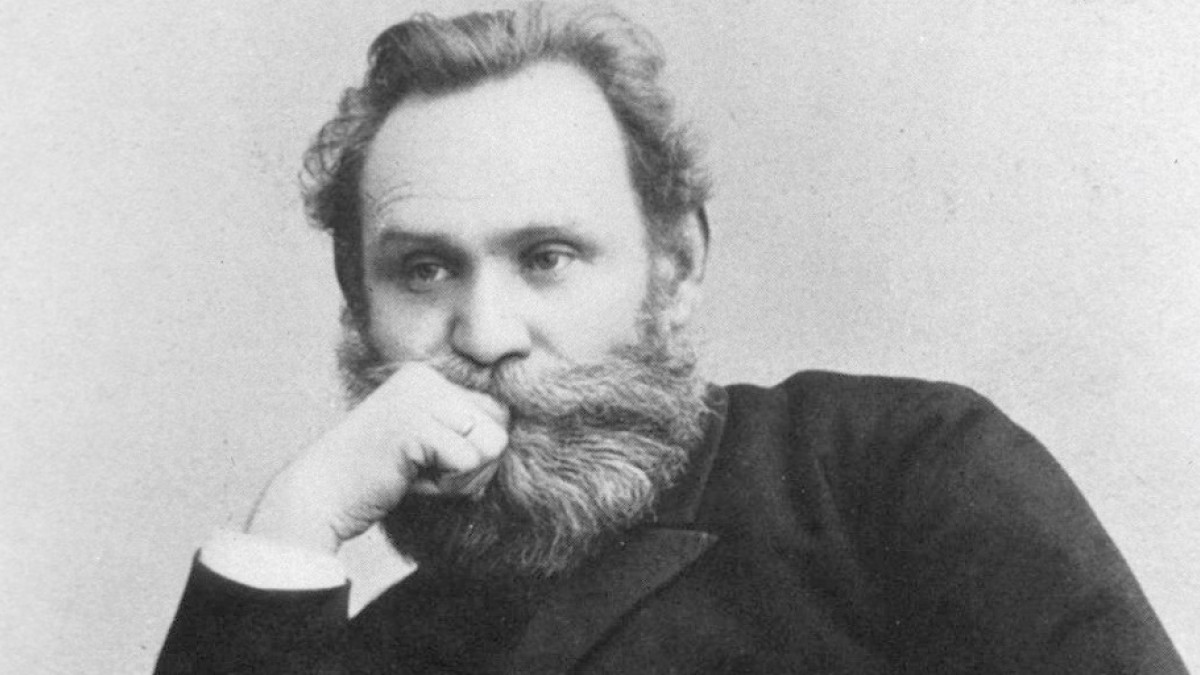
Ivan Pavlov is a name that often pops up in psychology classes, but who was he really? Known for his groundbreaking work in classical conditioning, Pavlov's experiments with dogs have left a lasting impact on how we understand behavior and learning. But there's more to this Russian scientist than just ringing bells and salivating canines. Did you know he originally studied theology before switching to medicine? Or that he won a Nobel Prize in Physiology? This post dives into 14 intriguing facts about Ivan Pavlov, shedding light on his life, his work, and the legacy he left behind. Get ready to learn some surprising details about this iconic figure in science!
Key Takeaways:
- Ivan Pavlov, a Russian scientist, accidentally discovered classical conditioning while studying dogs. His work influenced psychology and education, showing that behavior can be learned through association.
- Pavlov's legacy lives on through his Nobel Prize-winning research and his dedication to science. His work continues to impact fields like psychology, education, and even marketing, showing that learning and behavior are still relevant today.
Who Was Ivan Pavlov?
Ivan Pavlov, a Russian physiologist, is best known for his work in classical conditioning. His experiments with dogs have left a lasting impact on psychology and education. Let's dive into some intriguing facts about his life and work.
-
Pavlov was born on September 14, 1849, in Ryazan, Russia. His father was a village priest, which influenced his early education.
-
Initially, Pavlov studied theology. However, he switched to natural sciences after being inspired by the works of Charles Darwin and Ivan Sechenov.
-
Pavlov graduated from the University of St. Petersburg in 1875 with a degree in natural sciences. He later earned a doctorate in medicine.
Pavlov's Groundbreaking Experiments
Pavlov's experiments with dogs are legendary. These studies laid the foundation for behaviorism and classical conditioning.
-
Pavlov discovered classical conditioning by accident. He noticed dogs salivated not only when they tasted food but also when they saw lab assistants who fed them.
-
To study this phenomenon, Pavlov designed an experiment where he rang a bell before feeding the dogs. Eventually, the dogs began to salivate at the sound of the bell alone.
-
Pavlov called the bell a "conditioned stimulus" and the salivation a "conditioned response." This groundbreaking discovery showed that behavior could be learned through association.
Impact on Psychology and Education
Pavlov's work has had a profound impact on various fields, particularly psychology and education.
-
His research on classical conditioning influenced behaviorism, a major psychological theory that focuses on observable behaviors rather than internal mental states.
-
Pavlov's findings have been applied in educational settings to develop techniques for behavior modification and classroom management.
-
His work also paved the way for further research into learning and memory, influencing notable psychologists like John B. Watson and B.F. Skinner.
Pavlov's Later Life and Legacy
Pavlov continued his research and made significant contributions to science until his death.
-
In 1904, Pavlov received the Nobel Prize in Physiology or Medicine for his research on the digestive system, not for his work on classical conditioning.
-
Despite his fame, Pavlov remained humble and dedicated to his research. He often worked long hours in his lab, even into his old age.
-
Pavlov was a vocal critic of the Soviet government. He openly opposed the Bolshevik regime, which led to tensions with the authorities.
-
He passed away on February 27, 1936, in Leningrad (now St. Petersburg), Russia. His legacy lives on through his contributions to science and psychology.
-
Pavlov's work continues to be studied and applied in various fields, including psychology, education, and even marketing. His discoveries about learning and behavior remain relevant today.
Pavlov's Legacy Lives On
Pavlov's work on classical conditioning has left a lasting mark on psychology and neuroscience. His experiments with dogs not only revealed the mechanics of conditioned responses but also opened doors to understanding human behavior. Pavlov's findings have applications in therapy, education, and even marketing.
His methods, though simple, were groundbreaking. They showed how external stimuli could shape behavior, a concept still relevant today. Pavlov's research paved the way for future scientists to explore the intricacies of the human mind.
Even though he started as a physiologist, his contributions to psychology are invaluable. Pavlov's legacy reminds us that curiosity and rigorous experimentation can lead to discoveries that transcend disciplines. His work continues to inspire and inform, proving that the quest for knowledge is never-ending.
Frequently Asked Questions
Was this page helpful?
Our commitment to delivering trustworthy and engaging content is at the heart of what we do. Each fact on our site is contributed by real users like you, bringing a wealth of diverse insights and information. To ensure the highest standards of accuracy and reliability, our dedicated editors meticulously review each submission. This process guarantees that the facts we share are not only fascinating but also credible. Trust in our commitment to quality and authenticity as you explore and learn with us.
